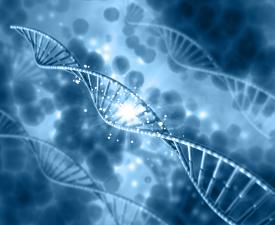How do Scientists Identify Hereditary Cancer Gene Mutations?
June 25, 2020
Today, there are thousands of gene variations associated with an increased risk of developing cancer. With such a large number of gene variations affecting disease development, it’s easy to overlook exactly how they’re discovered. Some of these variants are quite common with a small effect size, or low contribution to the development of a particular disease, and others are exceedingly rare variants with a large effect, such as hereditary cancer gene mutations. For the purposes of this article, we’ll focus on the discovery of uncommon gene mutations with a large effect, the methods used, and how mutation identification can affect patient treatment.

Pancreatic cancer is a disease with poor prognosis that demonstrates familial inheritance in about ten percent of cases. The first-ever hereditary pancreatic cancer gene mutation was discovered recently by a team from the Dana- Farber/Brigham and Women's Cancer Center investigating a family with a history of pancreatic and other cancers.1 The investigators from the study used whole-genome sequencing (WGS) and computational analysis to identify variations in the genome that segregated, or were inherited, disproportionately more often in affected versus unaffected family members.2 The computational analysis filtered all of the variants detected during WGS between the 48-year-old proband, or study subject, and her 80-year-old paternal uncle in a stepwise fashion to narrow the candidate pool. The analysis filtered (in order) variants that were rare, present in both the proband and her affected paternal uncle, heterozygous (the variant was found on only one allele), protein-altering, and not present in normal control DNA samples. This computational filtering ultimately identified a truncating RAS oncogene family-like 3 (RABL3) gene mutation in both the 48-year-old proband and her affected paternal uncle that segregated with several other affected family members and one unaffected family member.
Segregation of the RABL3 mutation in a high proportion of affected family members was strong evidence that the RABL3 truncation contributed to their development of pancreatic cancer, but additional evidence was needed to establish a causative relationship between the mutation and disease development. Unfortunately, finding and recruiting other affected families with the same or a similar rare genetic mutation is difficult and exceedingly time consuming, so the investigators instead created transgenic zebrafish models to recapitulate the gene mutation and study its effects on cancer development. Transgenic zebrafish expressing the truncated mutant RABL3 did, in fact, demonstrate much higher rates of cancer. Further investigation revealed that truncated mutant RABL3 accelerates the movement of KRAS, promoting the placement of KRAS in the cell membrane and ultimately, cell proliferation. Importantly, altered KRAS activity has been observed in the majority of pancreatic cancers. Further study into the interaction between RABL3 and KRAS may provide a better understanding of pancreatic cancer development as well as unique targets for future therapies.
Earlier detection of cancer can ultimately provide both patient and physician with a more treatable form of disease. Establishing the presence of a hereditary cancer gene in a patient with a family history of cancer provides physicians a more complete understanding of a patient’s cancer risk and enables healthcare providers to more efficiently screen for disease. While the RABL3 mutation from our case study is not yet available on any commercially-available hereditary cancer test, it will be soon, and the investigators recommend that any patient with a family history of pancreatic cancer be tested for the RABL3 mutation. Kailos Genetics’ ExpedioTM Hereditary Cancer Screening is the most comprehensive cancer screening panel on the market today, providing physicians with genetic information that may result in more relevant, targeted patient screening and earlier disease detection and intervention. Click here to learn more about our test or contact us with any questions about this or any of our other genetic screening products.




